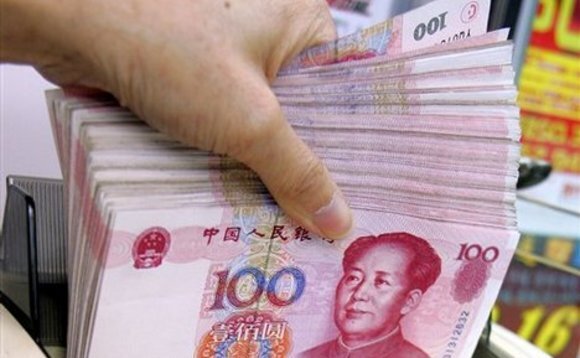
China's brokerages get the green light to launch funds

The flood of entrants into China's domestic private equity market has largely been driven by cash-rich companies, local government entities and high net worth individuals all chasing pre-IPO deals. Formal financial institutions have found themselves held back by regulators wary of overexposure to what is a risky and often volatile asset class.
Securities companies have been permitted to raise funds since 2006 under a pilot program closely marshaled by the China Securities Regulatory Commission (CSRC). Now the program is about to be rolled out nationwide – and an already competitive market is expected to move up another gear.
"Securities firms will bring a large amount of capital into market, making it even more competitive," says one local private equity source. "Closing deals will become more difficult."
A source at a Chinese brokerage that has already set up a fund under the pilot scheme goes so far as to suggest that the arrival of well connected and amply resourced securities firms – they certainly offer strengths that independent funds can't match – could push the market over the edge. He envisages a scenario in which these funds bid up prices to the point that profitable exits are no longer possible.
The CSRC has put measures in place to try and stop behavior from spiraling out of control. The rules under which securities firms can set up a local private equity subsidiary and raise funds in a limited partnership prohibit firms from investing more than 15% of their own capital into vehicles they set up. And the number of investors in a single fund has been capped at 50.
"Securities companies are not allowed to underwrite an IPO of a company which has been already invested by its own fund," adds Xiaowei Yin, a partner at Morrison Foerster.
It is thought that 34 securities firms have been awarded licenses to set up private equity funds under the five-year-old pilot program. There are 109 registered securities companies nationwide and Morrison Foerster expects to see another round of fund licenses issued by the end of the year.
Relaxed controls
The pilot program originally required brokerages to establish funds as wholly-owned subsidiaries and erect Chinese Walls between the parents and subsidiaries. These conditions were relaxed in 2009 to enable more firms to apply for licenses. Guoyuan Securities, Changjiang Securities, China Merchant Securities and China Galaxy Securities were reportedly among 15 firms subsequently allowed to set up funds directly.
According to a KPMG report, 22 securities firms had created direct investment subsidiaries by September 2010, with a total registered capital of around RMB16.7 billion ($2.5 billion). The report further states that BOC International, CITIC Securities, Guoseng Securities and Haitong Securities made capital injections into private equity subsidiaries of RMB300 million ($46.4 million) to RMB1.5 billion ($232 million).
China International Capital Corp. (CICC) last year became the first brokerage to tap third-party investors, raising a $500 million US dollar-denominated fund through its Hong Kong unit. The company told AVCJ in June that is was poised to announce a RMB1.5 billion ($231.5 million) first close on its debut renminbi-denominated fund, with a full target of RMB5 billion ($771.7 million).
The likes of the National Council for Social Security Fund and China Development Bank were said to be among the prospective investors. Jiangsu Yanghe Brewery Joint-Stock Co said in a statement submitted to the Shenzhen Stock Exchange that it had agreed to commit RMB300 million ($46.3 million) to the fund. That statement referred to the vehicle as the "CICC industry consolidation fund," adding that it will target both listed and non-listed companies.
Liu Zhao, executive director of the new renminbi fund, has said that CICC expects private equity to account for 20%-30% of total revenue within five years.
Long-term agenda
Asked what the Chinese government hopes to achieve by having securities firms participate in private equity, a local source pointed to investment stability. "I think the government wants securities companies, which have lots of capital, to make long-term investments that deliver stable gains."
China's securities companies earned RMB102 billion in net profit in 2009, up by more than 90% on the previous year, according to KPMG.
Security brokers earn RMB102 billion ($15.7 billion) in net profit in 2009 and this number represent an increase of 90% over the 2008, KPMG's report noted. These figures are of course influenced by the fortunes of the local stock market as the bulk of revenues come from IPO underwriting fees.
Private equity would diversify these revenue streams – although strong exits are ultimately dependent on a healthy market.
Latest News
Asian GPs slow implementation of ESG policies - survey
Asia-based private equity firms are assigning more dedicated resources to environment, social, and governance (ESG) programmes, but policy changes have slowed in the past 12 months, in part due to concerns raised internally and by LPs, according to a...
Singapore fintech start-up LXA gets $10m seed round
New Enterprise Associates (NEA) has led a USD 10m seed round for Singapore’s LXA, a financial technology start-up launched by a former Asia senior executive at The Blackstone Group.
India's InCred announces $60m round, claims unicorn status
Indian non-bank lender InCred Financial Services said it has received INR 5bn (USD 60m) at a valuation of at least USD 1bn from unnamed investors including “a global private equity fund.”
Insight leads $50m round for Australia's Roller
Insight Partners has led a USD 50m round for Australia’s Roller, a venue management software provider specializing in family fun parks.








